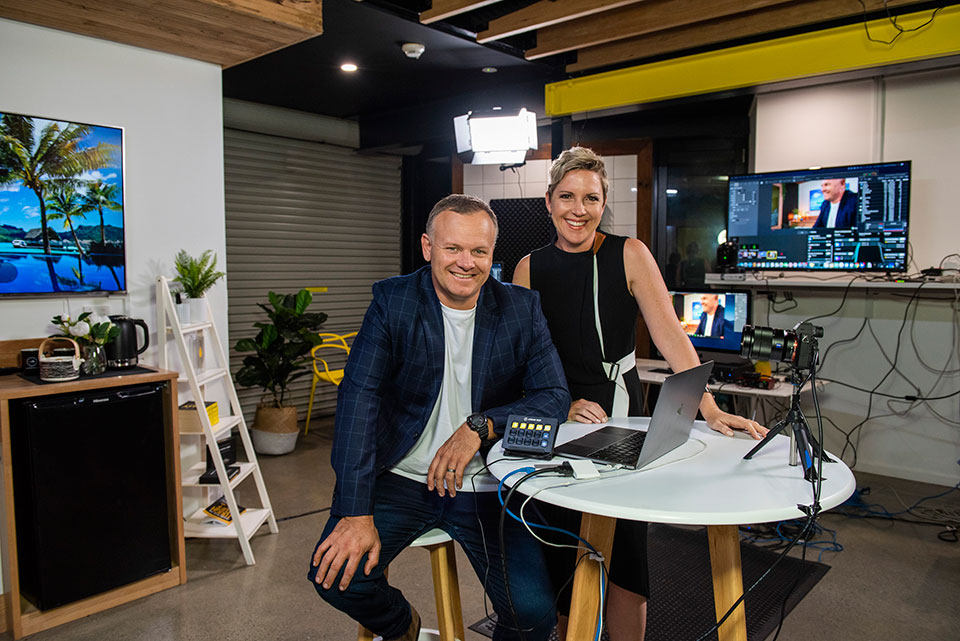Why you’ll lose the war on talent if you don’t adopt a hybrid model

The call for more workplace flexibility is strong. If you’ve recently been swayed to this side, welcome. If you’ve been an advocate since the dawn of time, hello again old friend.
Hybrid work is something we’re incredibly passionate about at Pragmatic Thinking, but it wasn’t always this way. To be completely transparent with you, for a long time we battled against remote work with a strong belief that coming together as a team was about culture over comfort. But after the world-changing events of 2020 (and their ongoing impacts), we changed our approach to how work is done. In fact we realised we would have to make a big shift in our belief, before we made a shift in our structures of work as a hybrid model. We made it work… better than ‘work’…our team now thrive in this environment.
Our high performers love it, and talent are being attracted to the shifts we are making.
Let’s explore the importance of adopting a flexible, hybrid model and why if you choose to insist people go back to the office (when they’ve been successful not in the office) you could be losing the war on talent, for good.
Why you will lose the war on talent if you don’t adopt a hybrid model
A lot has changed since the wide-scale adoption of hybrid work practices. Seek has gone so far as to add a new category for work from home roles due to the influx in flexible working practices. For workplaces that are forcing their teams to return to the traditional full-time office environment, they’re coming up against resistance due to the large-scale acceptance, and results that have been achieved from remote work.
It’s not a single story of success that’s driving the passion for hybrid work. Workplaces across the globe are adopting this split approach between in-office work and work from home with unexpected results.
Laminex Australia, a large Australian manufacturing client of ours, have been leading the way with their Work From Anywhere policy. Recognising that leaders need new skills in this approach their leaders have benefited from participating in our Virtual Leader program (via world-class virtual sessions of course). Other organisations small and large have decided to increase their flexible working practices into the future and this trend is set to continue well into the coming years.
Teams have gotten used to working from home, not having to battle the commute, working parents enjoy having the flexibility to take the kids to school and attend important school events, and across all age groups the additional autonomy and creative thinking time has become a priority. For those attempting to get their teams back into the office, it’s quickly becoming evident how difficult of a process it is going to be. That’s not to say it’s impossible to return to the office after adopting work from home, but it is likely to lead to some resentment and unforeseen challenges along the way.
According to our recent State of Remote Work Survey, when comparing the different modes of work a mix between home and office came out on top with 77.7% of people preferring a hybrid approach. We also found that the most preferred approach for hybrid was three days in the office and two days working from home. These findings are valuable insights for workplaces still in the early stages of deciding the best approach for embracing hybrid long-term.
Going back to the topic of talent management and team morale, it’s important that we consider what would realistically happen if your organisation continues along the path of the traditional office work environment into the future.
While this is certainly a necessity for some organisations, and some roles, there is reason to believe that offering increased flexibility to all workers would be advantageous regardless of company size, industry, or role. The job market is getting increasingly competitive and with remote work and hybrid work opportunities opening up globally, organisations are now able to hire from diverse talent pools that may have previously been inaccessible.
For organisations who’ve moved to work from home temporarily and are planning a return to the office, you may find the reactions of your team members to vary greatly. From our research we’ve noted that 61% of people would ask for more flexibility if requested to return to the office full-time. We also found that 9.8% of people would start looking for another job if there wasn’t the opportunity to have flexibility in how they work. This cost of losing talent could be significant to your organisation.
Overall, if you want to remain competitive as an employer of choice, regardless of industry, you’re going to need to create opportunities for your employees to embrace flexible working through a hybrid approach.
Written by Alison Hill and Darren Hill.
Bring the best of the CEOWORLD magazine's global journalism to audiences in the United States and around the world. - Add CEOWORLD magazine to your Google News feed.
Follow CEOWORLD magazine headlines on: Google News, LinkedIn, Twitter, and Facebook.
Copyright 2025 The CEOWORLD magazine. All rights reserved. This material (and any extract from it) must not be copied, redistributed or placed on any website, without CEOWORLD magazine' prior written consent. For media queries, please contact: info@ceoworld.biz








